 Origins 2017. I’ve made quick friends with some fellow early-rising board gamers. We’ve dubbed ourselves the “8am Heavy Euro” group. During the show, we managed to play Kanban, Railroad Revolution, and Navegador in the mornings before the exhibit hall even opened. And at 8am on the final day of Origins I was introduced to Concordia.
Origins 2017. I’ve made quick friends with some fellow early-rising board gamers. We’ve dubbed ourselves the “8am Heavy Euro” group. During the show, we managed to play Kanban, Railroad Revolution, and Navegador in the mornings before the exhibit hall even opened. And at 8am on the final day of Origins I was introduced to Concordia.
Since that fateful Sunday in June I’ve played Concordia at least 35 times. I’m sure there are a few I haven’t logged in my trusty BGStats app. Needless to say, I love it. And there is now a digital version on Steam to dig into. So let’s see how it looks.
Gameplay Overview:
Surprisingly, Concordia hasn’t got a full review here on BGQ. It only gets the mention in my Top 10 Games of All Game and such. So if you know and love the analog version, feel free to skip down a bit. Otherwise, let’s briefly discuss how it works.
The map in Concordia is separated into a number of provinces, each with multiple cities. And each city produces one of the game’s resources: bricks, wheat, wine, etc. Each player starts with some money, resources, and two meeples on the board that the game refers to as colonists.
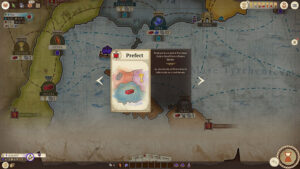
On your turn you’ll simply play one of the cards in your hand and do what it says.
- Architect – move colonists and then build houses in cities adjacent to your colonist. Each city costs money and resources to build.
- Mercantor – Gain three dollars and then buy or sell up to two different types of resources.
- Prefect – Choose a province. Every player gains resources based on their cities in that province.
- Senator – Spend resources to add up to two new cards from the display to your hand.
There are a few other cards with less commonly used abilities, but those make up the bulk of what you are doing. And you’ll continue in this manner until all the cards have been bought from the display or someone has built their last house.
But the scoring is what really sets Concordia apart. Each card you add to your deck scores in a different way. Some cards score for having a house in as many provinces as possible. Or they may score for getting more colonists on the board. Or just producing all different types of resources. So when the game is over the points you score for each category depend on the cards you’ve bought throughout the game as well.
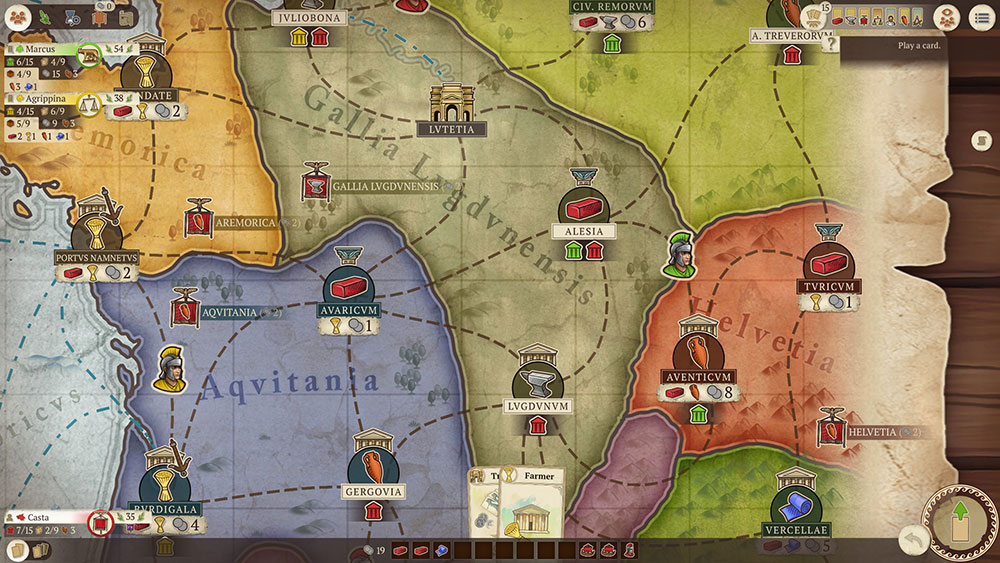
Digital Game Experience:
As this is a digital game review I’m going to focus mostly on the digital implementation here. As far as the game is concerned in a more general way, it’s great. You should definitely own it in some form.
And if digital is a way you find yourself about to get games played more often, this is a solid implementation. Starting where everyone starts, the tutorial is serviceable. It’s tough to judge exactly as I’m pretty familiar with all the ins and outs here, but it seemed to me that it covered everything you might need to know. There are also additional maps that you can play on, some of which change the rules slightly. The digital implementation pops up a helpful summary of the map-specific rule changes when you launch a game on a new map.
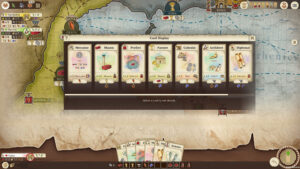
There is a lot of info to have to display on the screen at any given time. Concordia Digital does a lot of the heavy lifting here by using icons to represent each of the card’s powers. It’s important to be able to see the cards in the display to be purchased as well as the last played cards of your opponents (there is a card power that lets you copy them). Once you become familiar with what each icon is trying to tell you, you’ll have no problem finding all that info at a glance.
It’s also important to be able to look at the map and see what cities have houses in them, where the colonists are, and the cost to build a new house in a given city. All of this info is certainly there but it’s a lot to try to display. I find the location of the colonists especially gets lost at times and I’ll have to search around to find where all my folks are at.
If you are looking to play online there is a lobby and online matchmaking. The only issue I’ve run into is occasionally having to manually refresh the game to see that it is now my turn. I will say the publicly open games are pretty limited and trying to find a random game to join isn’t particularly easy. The developers do have a Discord server where there seems to be more players looking for games and even some tournaments going on.
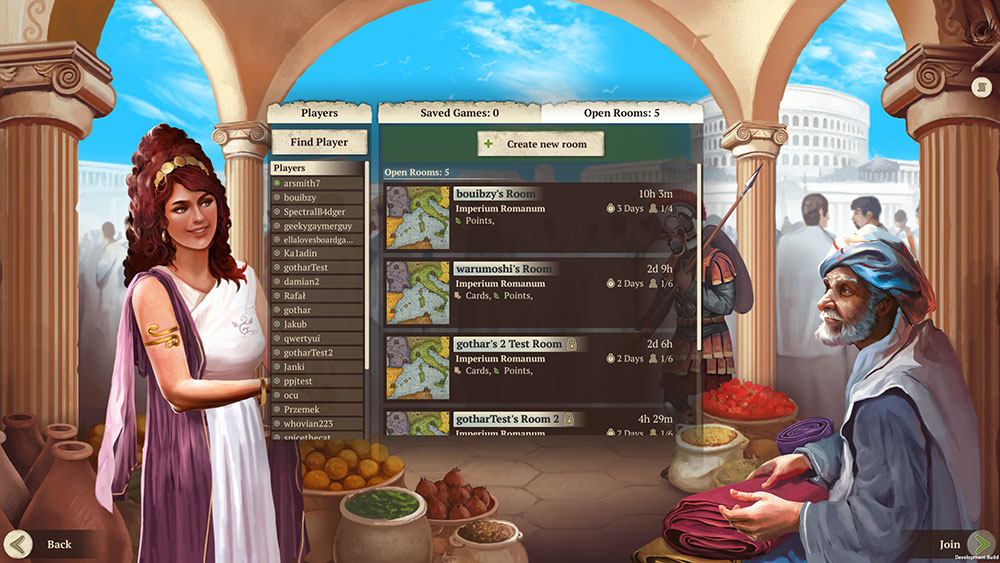
Final Thoughts:
Good digital implementations of heavy euro games are hard to come by, I think. Mostly it comes down to needing to display a whole lot of info at the same time. A lot of that info isn’t always important but it’s got to be somewhere on the screen when you need it.
And Concordia digital does a mostly good job with that. The map is busy and a few things can get lost, but the iconography is clear and useful in helping to manage that. The online play works well, assuming you can find folks to play with. The developers seem to be invested in adding more maps and supporting tournaments through their Discord server so if you want to get your Concordia fix without having to have people over to your house, this is a great alternative. The digital version is available for iOS, Android, and Steam.
Final Score: 4 Stars – A very good implementation of one of my favorite board games. If you can’t play it often in person this is a great substitute.
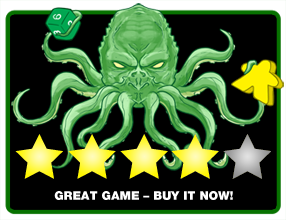 Hits:
Hits:
• Tutorial and map summary gets players off to a good start.
• Iconography for each action card helps view the situation at a glance.
• Few issues with online play.
Misses:
• Lots of info on the map makes it all a little too busy to keep track of.
• Public lobbies don’t seem to fill very quickly.
Source: Board Game Quest





